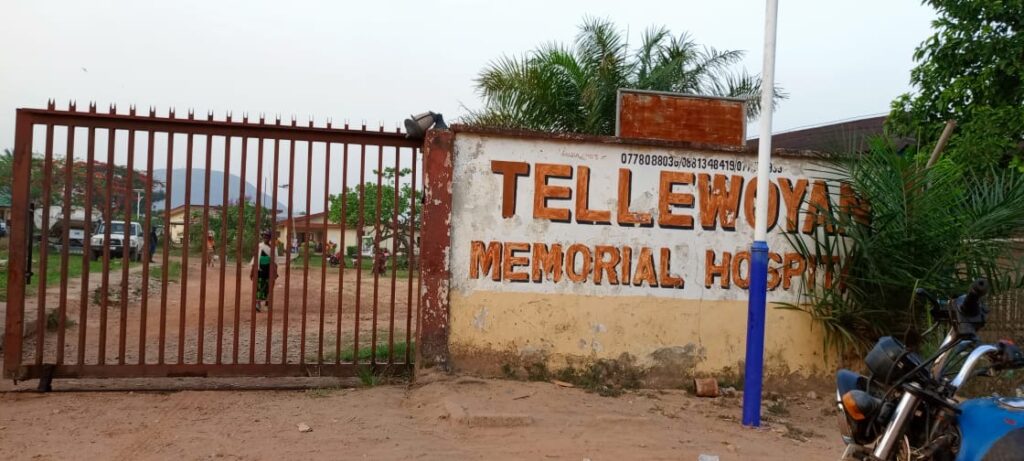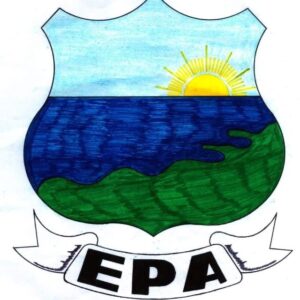“Revolving Drug Fund Is Saving More Lives at Teleweyon Hospital”, Caretaker Mallay Kollie Unveils

By Victory Wesseh, +231 77 814 7938: FeJAL Mentorship Fellow
Voinjoima, Lofa County: A caretaker at the Teleweyon Hospital has revealed that the Revolving Drug Fund (RDF} is saving more lives at the facility than in previous years.
According to Madam Mallay Kollie, before the coming into being of the RDF policy, which was instituted by former President Ellen Johnson Sirleaf, there was an increase in the death rates at the hospital.
The Revolving Drug Fund (RDF) is a system designed to enhance the accessibility and sustainability of essential medicines through a self-supporting mechanism. The RDF serves as a practical solution to the common problem of drug shortages in resource-limited settings. RDF policy was officially established under the administration of former President Ellen Johnson Sirleaf in 2006 the formal policy implementation was aimed at systematically addressing the issues of drug availability and health system strengthening during her tenure.
The establishment and expansion of RDFs across the country were part of broader health sector reforms intended to rebuild and enhance healthcare infrastructure and services following years of civil unrest and the challenges posed by the Ebola crisis in 2014. In Liberia, as in many developing nations, public healthcare facilities often face challenges such as inadequate funding, which can lead to frequent stock-outs of essential drugs. RDF helps to mitigate this by ensuring a more reliable supply of medications, improving both access and the quality of healthcare.
The RDF policy under the former President Sirleaf’s administration was critical in ensuring the sustainability of drug supplies and improving healthcare outcomes throughout Liberia. The RDF policy operated by purchasing drugs in bulk at lower negotiated prices and these drugs are then sold to patients at affordable prices that include a small markup that covers the cost of replenishment, ensuring the fund can continue to operate without needing additional financial input.
Speaking to Madam Kollie recently in Voinjoima, Lofa County, about the impact of the RDF at the hospital, she said the policy is good because it has saved lives and restored trust in the hospital. Mallay noted that prior to the FDR policy more deaths were reported due to the unavailability of drugs.
“Just imagine we used to have the money but no way to get the medicine, there was no medicine in the hospital, and sometimes we had to go the distance to get drugs just to save the lives of our family members.” She said.
Miss Kollie continued, if you are not strong enough and God is not with you the news can be heartbreaking because the patient might even die in the process”.
She added that drugs being sold at the hospital are by far better than buying drugs from medicine stores. She said buying the medicine from drug stores is even more risky, emphasizing that the person who is going to get the medication may not know the difference between the drugs because he or she may not be a healthcare practitioner “If you compare the prices of drugs in the hospital and the ones in the medicine store you will get to know that the one outside of the hospital is very expressive while the drugs in the hospital are less expensive and affordable.”
Mallay further called on the government of Liberia to provide more support to the hospital to keep its citizens healthy.
For his part, the Administrator of the Teleweyon Memorial Hospital Mr. Albert Colee said the Drugs Revolving Fund hasn’t been working until January 2022 when the actual sale of the medication started at the hospital.
Mr. Colee said the idea of the DRF originated from different talk show hosts based on the huge challenges both the patients and hospital staff faced at the time. Cole named some of the challenges as the lack of drugs, medical supplies, bad road conditions, Lack of Development Cooperation, and pharmacies among others.
According to Mr. Cole the continuous reinvesting of revenue generated from the sale of the medicines, the RDF can sustain itself over time and helps to keep essential medicines in stock, thereby improving healthcare delivery.
“The choice to use a revolving fund model is driven by the need for a sustainable financing mechanism in the health sector, especially in countries where government funding may be insufficient or erratic. This model not only helps in maintaining a constant supply of essential drugs but also reduces dependency on external funding (such as donations or government allocations), which can be unpredictable”.
Mr Colee further noted that the DRF is not meant for profit making but rather to make sure that drugs are at the facility for patients to be well treated and to discourage patients from going out to buy drugs which sometimes turn up to be expired drugs.
“The DRF is beneficiary to us who are patients because it reduces the death rate at the facility in that when patients are brought to that hospital and their condition is critical going out to buy drugs will sometimes endanger the life of a patient. G Kolee Dowana patients noted”,
According to Dowana, although all of the drugs are not at the hospital the process of buying drugs is very smooth and easy. “I’m calling on every doctor to be as caring for the betterment and safety of patients’ lives”.
The implementation of RDFs in Liberia, particularly after the devastation of the Ebola outbreak, has been crucial in rebuilding and strengthening the healthcare system. It has enabled health facilities to maintain a stock of critical medicines, thus enhancing the resilience of the health system against future crises.
Revolving Drug Funds in Liberia are used to create a sustainable system of drug supply that enhances the availability, affordability, and reliability of essential medicines for the population, helping to stabilize the healthcare system in the long term.






